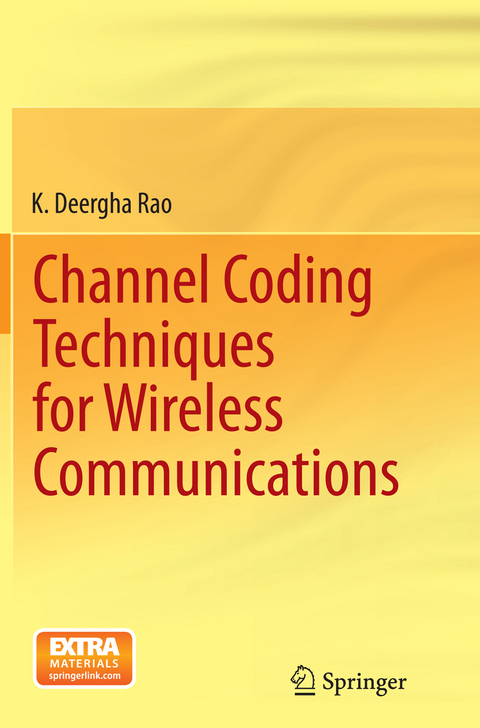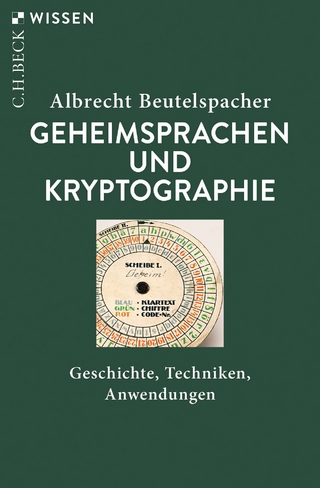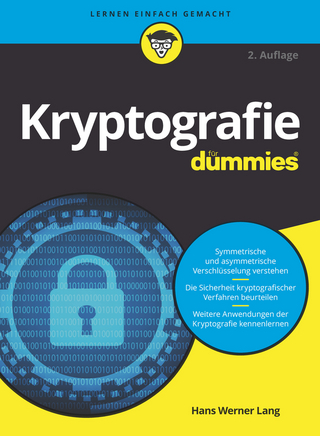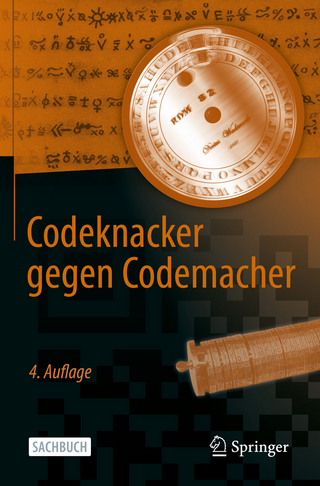
Channel Coding Techniques for Wireless Communications
Springer, India, Private Ltd (Verlag)
978-81-322-3537-8 (ISBN)
The book is divided into 11 chapters. Assuming no prior knowledge in the field of channel coding, the opening chapters (1 - 2) begin with basic theory and discuss how to improve the performance of wireless communication channels using channel coding. Chapters 3 and 4 introduce Galois fields and present detailed coverage of BCH codes and Reed-Solomon codes. Chapters 5–7 introduce the family of convolutional codes, hard and soft-decision Viterbi algorithms, turbo codes, BCJR algorithm for turbo decoding and studies trellis coded modulation (TCM), turbo trellis coded modulation (TTCM), bit-interleaved coded modulation (BICM) as well as iterative BICM (BICM-ID) and compares them under various channel conditions. Chapters 8 and 9 focus on low-density parity-check (LDPC) codes, LT codes and Raptor codes. Chapters 10 and 11 discuss MIMO systems and space-time (ST) coding.
K. DEERGHA RAO is director and professor in the Navigational Electronics Research and Training Unit (NERTU), University College of Engineering, Osmania University, Hyderabad, India. Earlier, he was a postdoctoral fellow and part-time professor at the Department of Electronics and Communication Engineering, Concordia University, Montreal, Canada. He has executed several research projects for premium Indian organizations such as Defence Research and Development Organization (DRDO), Hindustan Aeronautical Limited (HAL) and Bharat Electronics Limited (BEL). His teaching areas are digital signal processing, digital image processing, coding theory for wireless channels and MIMO wireless communications, whereas his research interests include GPS signal processing, wireless channel coding, blind equalization, robust multiuser detection, OFDM UWB signal processing, MIMO SFBC OFDM, image processing, cryptosystems and VLSI signal processing. Professor Rao has presented papers at IEEE international conferences several times in the U.S.A., Switzerland and Russia. He has more than 100 publications to his credit, including more than 60 publications in IEEE journals and conference proceedings. He is a senior member of IEEE and has served as chairman of communications and signal processing societies joint chapter of IEEE Hyderabad section. He is currently a member of the IEEE SPS chapters committee. He was awarded 2013 IETE K.S. Krishnan Memorial Award for the best system oriented paper. He has served as Communications Track Chair for IEEE INDICON 2011 held at Hyderabad. He is an editorial board member of the International Journal of Sustainable Aviation (Inderscience Publishers, U.K.). He has coauthored a book, Digital Signal Processing (Jaico Publishing House, India).
Chapter 1. Introduction.- Chapter 2. Performance of Digital Communication Over Fading Channels.- Chapter 3. Galois Field Theory.- Chapter 4. Linear Block Codes.- Chapter 5. Convolutional Codes.- Chapter 6. Turbo Codes.- Chapter 7. Bandwidth Efficient Coded Modulation.- Chapter 8. Low Density Parity Check codes.- Chapter 9. LT and Raptor Codes.- Chapter 10. MIMO System.- Chapter 11. Space-Time Coding.
| Erscheinungsdatum | 29.10.2016 |
|---|---|
| Zusatzinfo | 255 Illustrations, black and white; XXI, 394 p. 255 illus. |
| Verlagsort | New Delhi |
| Sprache | englisch |
| Maße | 155 x 235 mm |
| Themenwelt | Mathematik / Informatik ► Informatik ► Netzwerke |
| Informatik ► Theorie / Studium ► Kryptologie | |
| Mathematik / Informatik ► Mathematik ► Analysis | |
| Mathematik / Informatik ► Mathematik ► Angewandte Mathematik | |
| Technik | |
| Schlagworte | Block Codes • coding theory • Low parity check code • PC-based MATLAB programs • Turbo Code • wireless communication |
| ISBN-10 | 81-322-3537-1 / 8132235371 |
| ISBN-13 | 978-81-322-3537-8 / 9788132235378 |
| Zustand | Neuware |
| Haben Sie eine Frage zum Produkt? |
aus dem Bereich


